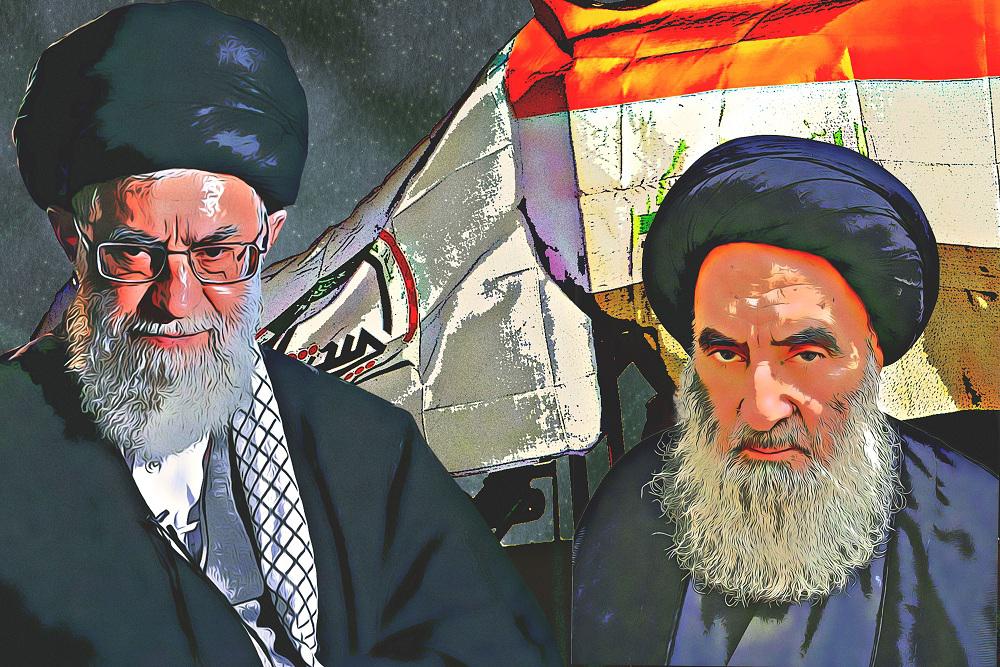According to Ibn Rushd (Averroes), trade in religions is the most profitable trade in societies where ignorance is widespread. If you want to control an ignorant person, you must cover all falsehood with a religious cover, which is exactly what is happening today in Iraq. The religious authorities in Najaf and Qom, as well as the corrupt religious parties, gave religious rituals to the Shiites in exchange for obtaining Iraq’s bounties and keeping them from their people. The spread of backwardness and ignorance in Iraqi society has always fed tyranny and religious overstatement, corrupt parties, and criminal militias. The Iraqi people believe that religious references in Najaf and Qom have no influence on political affairs or the course of political events, but facts show that religious references are the main axis that affects the political process in Iraq. It became clear that whoever chooses the government is the reference, and whoever brings the government down is the reference itself, as was the case with corrupt figures such as Al-Maliki, Al-Abadi, and others. Iraqis, however, remain silent due to internalized ignorance and fear. By the order of the reference, anyone who speaks about this fall outside the religion and becomes one of the doctrine’s infidels and outlaws. The people themselves have granted religious authority and sanctity, thus the ordinary Iraqi is now more scared of the government and Sistani than of the god he worships. When the cleric went into politics, he didn’t forget that he was a cleric. He clung to the fact that he was a clergyman, and that one of the risks of being a religious politician is pretending to rule the country in God’s name. Most of the time, a politician doesn’t speak in the name of God because his situation depends on the political situation. The second issue is that if a politically religious person becomes a decision-maker, he will exclude others in the name of religion and not in the name of politics. For instance, if a religious politician disagrees with another politician, he will first expiate and demonize the other in order to provide an argument that is acceptable to his supporters. Religious politicians are always trying to sow sectarian seeds in the minds of the ignorant because it is the quickest and easiest way to mobilize the masses. The religious politician suffers from a disease known as “superiority complex” because he believes he is superior to others and a member of the elite. The religious politician uses God’s name to mislead the people. The politically devout know how to deceive ignorant people’s brains. For example, Khudair Al-Khuza’i, who was the Minister of Education, was asked why the top three in the baccalaureate were from Karbala, and what was the reason for that? Al-Khuza’i’s answer was, “It is one of the blessings of Imam Hussein.” The religious politician believes that he is able to control people’s brains and do whatever he wants with them. When Khudair Al-Khuzaei was asked why the school curricula were changed, his answer was that he took it upon himself to reformulate the Iraqi mind. The religious politician does not accept the other except for an interest and does not coexist with the other except with the presence of sectarian contributors. This political religiosity has become a threat to the country’s efforts to create a state of citizenship and human rights, which is a trend among people all over the world. By interfering with all aspects of life and its harmony, by forbidding this and that, political religiosity harms human relations between individuals with diverse convictions and beliefs. In order to determine the cause of conflict, civil wars, and instability throughout history, it is necessary to examine religious political activists, as they are a pathogen that destroys security and a menace to social harmony. The cleric used the politicization of religion as a magical tool to craft a stirring and irritating speech that persuaded tens of thousands of young people who had no idea they had answered the call. Political religiosity lets people believe, distorts religion, and moves toward what is worldly, utilitarian, and less important because it is based on the logic of addiction to dominance and violence. As a result, human nature is primed to contest power by any means necessary to achieve victory and control. So, what if those actions were mixed with religious sanctuary, injustice, arbitrariness, and aggression? Although the clergy are limited to the religious field, they do not find it embarrassing to issue fatwas on any issue that is not religious. So, you might see a religious man or religious authority talking about something that has nothing to do with religion. This is because they forget that each field has its own experts, laws, and even ways of thinking and skills. References and clerics try to surround themselves with an aura of holiness, and they want to put a physical and sensory barrier between themselves and the people in order to keep their status in the eyes of the public. Even though most of the politicians in the arena were involved in financial and administrative corruption, it cannot be denied that religious leaders’ involvement in the political process had a big effect on how bad the situation in Iraq got. Even though most of the politicians in the arena were involved in financial and administrative corruption, religious leaders in Najaf and Qom kept telling the people (especially the Shiite part) to vote for the same faces or at least the same parties. They tied the elections to the state of faith in obeying or disobeying God, without caring about the damage that voting for the same people can do. When will the sons of Iraq stop listening to these corrupt religious leaders in Najaf and Qom? This is the first and last question.
Dangers associated with political religiosity
